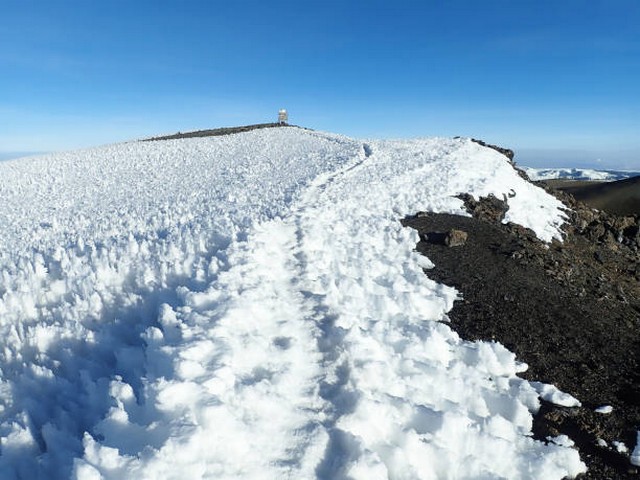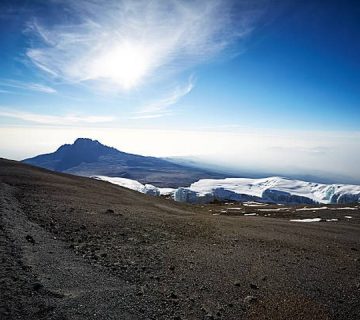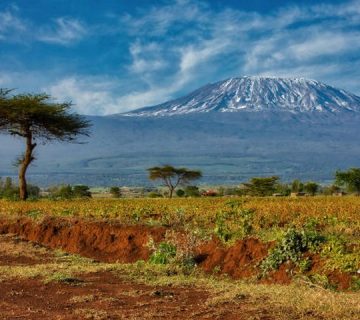How To Stay Healthy On A Kilimanjaro Trek: Tips from KCTE
Embarking on a trek up Mount Kilimanjaro is not just a journey of physical ascent but also an exploration of personal stamina and health. Here at Kilimanjaro Centre for Trekking and Ecotourism (KCTE), we understand that reaching the roof of Africa is a dream for many. However, keeping healthy on this formidable mountain is crucial to enjoy the trek fully and make it successful. This guide provides you with essential tips on how to stay healthy while embracing the thrill of Kilimanjaro’s majestic landscapes.
Why Staying Healthy is Crucial on Kilimanjaro
Climbing Kilimanjaro is no ordinary feat; it involves trekking through multiple climate zones, from tropical rainforests to arctic summits. Each zone presents its own challenges, making it essential to maintain your health throughout these diverse conditions. Proper preparation and awareness can significantly affect not only your enjoyment but also your overall success on the mountain.
Pre-Trek Preparation: The Foundation of a Healthy Climb
Physical Fitness
Start with getting physically fit. Kilimanjaro is demanding, and the better your physical condition, the more you will enjoy the climb. Engage in regular cardiovascular exercises such as running, swimming, or cycling. Don’t forget to include strength training and hikes that simulate the Kilimanjaro trek.
Medical Check-Up
Visit your doctor for a comprehensive check-up to assess your fitness for high-altitude trekking. Discuss any pre-existing conditions that could be affected by high altitude and get the necessary vaccinations recommended for travelers to Tanzania.
Diet and Nutrition
Prepare your body with the right diet. Focus on balanced meals enriched with carbohydrates, proteins, and essential fats. Hydration is key, so increase your intake of fluids before and during the trek to avoid dehydration.
On the Trail: Daily Health Management
Hydration is Key
At high altitudes, dehydration is a common and dangerous risk. On your Kilimanjaro trek, aim to drink at least 3-4 liters of water per day. Our guides at KCTE always stress the importance of fluid intake and will remind you throughout your journey.
Pace Yourself
“Pole pole” (slowly, slowly in Swahili) is the mantra on Kilimanjaro. Walking at a slower pace will help your body adjust to the altitude and reduce the risk of acute mountain sickness (AMS).
Eat Well
Your body will require more calories during the trek. KCTE provides nutrient-rich meals designed to sustain your energy levels throughout the climb. Don’t skip meals, even if you feel nauseous. Eating regularly helps maintain energy levels and aids acclimatization.
Listen to Your Body
Recognize the symptoms of altitude sickness, which can include headaches, nausea, and dizziness. Our experienced KCTE guides are trained to spot these symptoms and will help you take appropriate actions, which might include taking rest or, if necessary, descending.
Sleeping Above the Clouds: Rest and Recovery
Quality Sleep
Getting enough rest is crucial. The body repairs itself during sleep, and on Kilimanjaro, this is even more important. Equip yourself with a warm sleeping bag and an insulated mat, as temperatures can drop significantly at night.
Camp Hygiene
Maintain personal hygiene to avoid infections. Use hand sanitizers, keep your sleeping area clean, and always have a set of dry clothes to change into.
After the Summit: Post-Trek Recovery
Take It Easy
After your trek, give your body time to recover. Engage in light activities like gentle walking or stretching. Hydrate well and continue to eat balanced meals to replenish your body.
Celebrate Your Achievement
Successfully climbing Kilimanjaro is a monumental achievement. Celebrate your success! Share your experience with friends and family, and remember to relax and recover fully.
Why Choose KCTE for Your Kilimanjaro Adventure?
Kilimanjaro Centre for Trekking and Ecotourism (KCTE) isn’t just about guiding you to the summit; it’s about creating a supportive environment in which health and safety are prioritized. Our expert guides have years of experience and are trained in emergency first aid. We are committed to ensuring that every trekker has a memorable and healthy climb.
FAQ: Staying Healthy on Mount Kilimanjaro
Q1: How important is acclimatization for Kilimanjaro trekkers?
Acclimatization is crucial to prevent altitude sickness. KCTE’s itineraries are designed to allow gradual ascent and ample time for your body to adjust to higher altitudes.
Q2: Can I climb Kilimanjaro if I have a medical condition?
Many people with controlled medical conditions can climb Kilimanjaro. However, it is essential to consult your doctor and inform your KCTE guide about your condition.
Q3: What should I eat during my Kilimanjaro trek?
Focus on high-energy foods and carbohydrates. Our meals at KCTE are planned to meet the dietary needs of climbers, providing the necessary energy and nutrients.
Q4: What is the best way to train for Kilimanjaro?
Combine aerobic workouts with strength training and practice hiking on uneven terrains. Building your stamina and muscular strength is key to a successful climb.
Embark on your Kilimanjaro journey with confidence by choosing Kilimanjaro Centre for Trekking and Ecotourism (KCTE). We ensure not just a trek, but a full-scale adventure that keeps you healthy, safe, and inspired every step of the way. Ready to conquer the roof of Africa? Book your climb with KCTE today! Let’s make your dream of reaching the summit a reality, with health and happiness as your companions.




